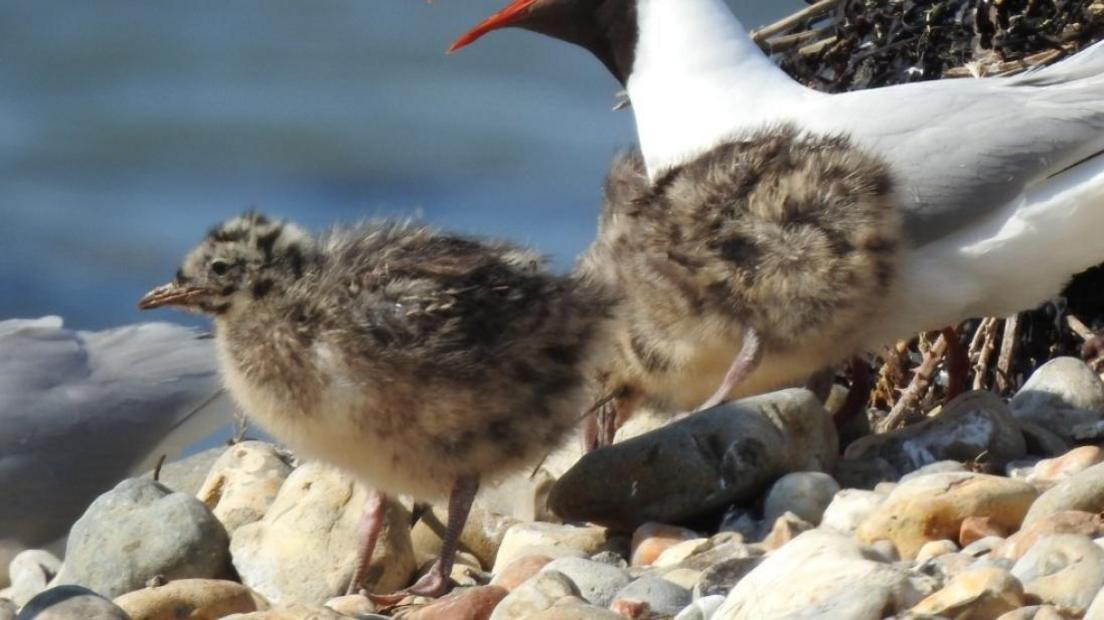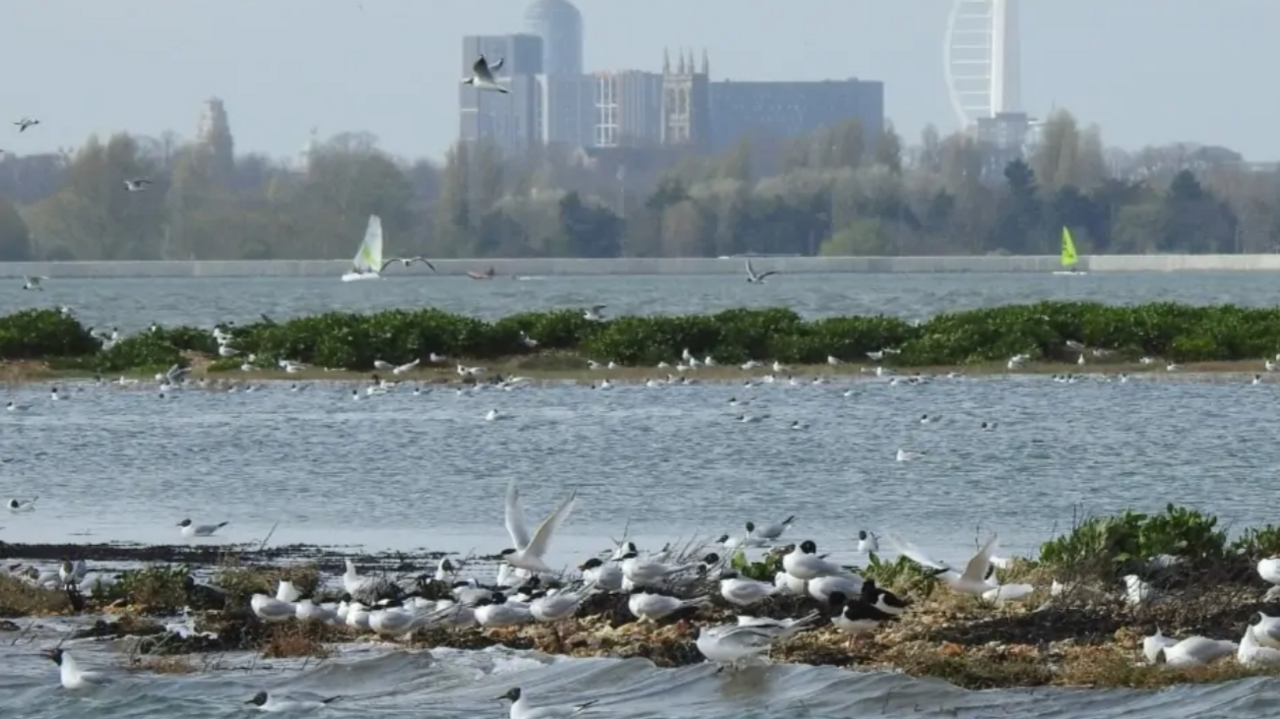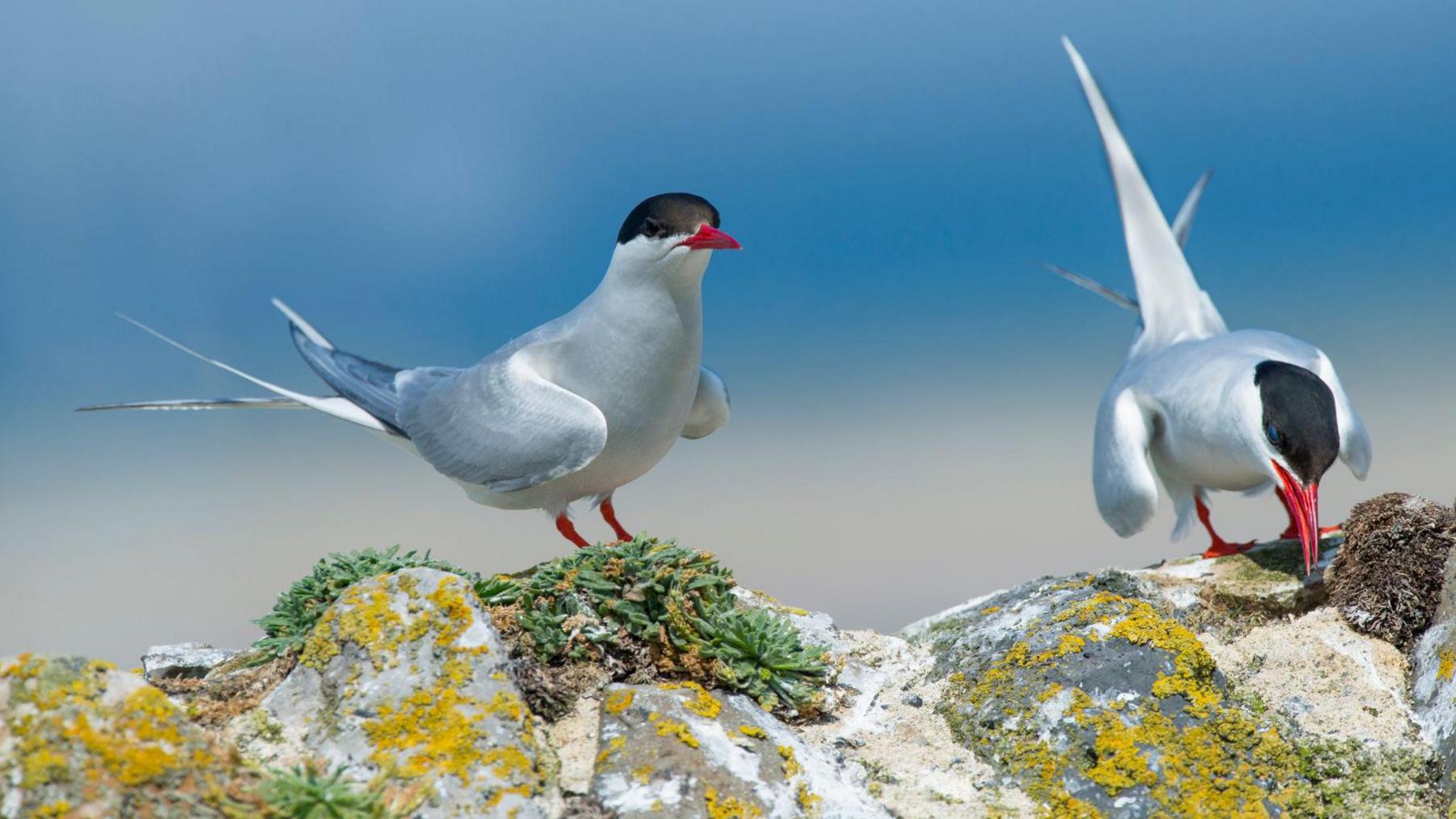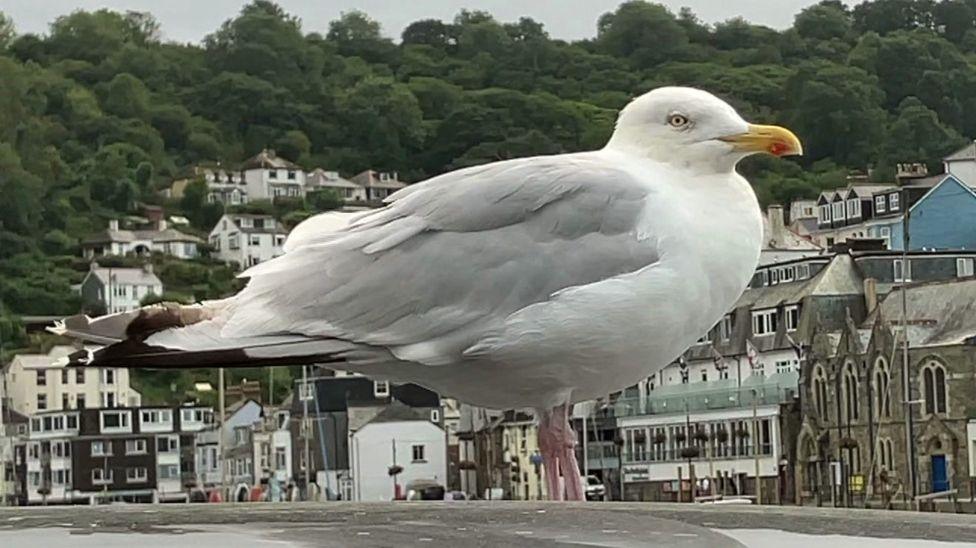Harbour restoration work saves nests from flooding

Black-headed gulls have enjoyed a successful breeding season in Langstone Harbour
- Published
An important breeding ground for birds has been saved from flooding in the nick of time, a council has said.
Lagoon islands in Langstone Harbour were raised and reshaped by Havant Borough Council and other groups earlier this year.
Without the work, a tidal surge on 27 May would have washed most of the nests away, according to the Hampshire authority.
It said species that had been in decline, including black-headed gulls and common terns, enjoyed a "bumper breeding season" at the site.
The surge tide - an abnormally high tide that is often associated with a storm - led to limited losses, the council said.
The vast majority of nests remained safe and dry on 400 tonnes of newly-installed shingle, it added.

Langstone Harbour is an important reserve for sea-birds
Researchers recorded 501 pairs of black-headed gulls nesting at the site on the edge of Hayling Island, which was 100 more than in 2024.
Sandwich Terns and Little Terns used the islands with their fledged young for the first time in recent years, they said.
Wez Smith, a senior project manager with the Royal Society for the Protection of Birds, said: "It's great to see the seabird numbers recover at the old oyster beds.
"This site is one of the most amazing on the English south coast and a real gem here on the shores of Langstone Harbour."
Dr Luke Helmer, from the conservation charity Blue Marine Foundation, said: "We are really hoping that the area could become a hub for our native oyster restoration efforts as well.
"If we get more oysters back in the Solent, they can start to filter the water and provide essential habitat for a variety of fish species, some of which are a vital food source for the seabirds in the area."
Get in touch
Do you have a story BBC Hampshire & Isle of Wight should cover?
You can follow BBC Hampshire & Isle of Wight on Facebook, external, X (Twitter), external, or Instagram, external.
See also
- Published7 April

- Published3 September 2024

- Published27 August 2024
